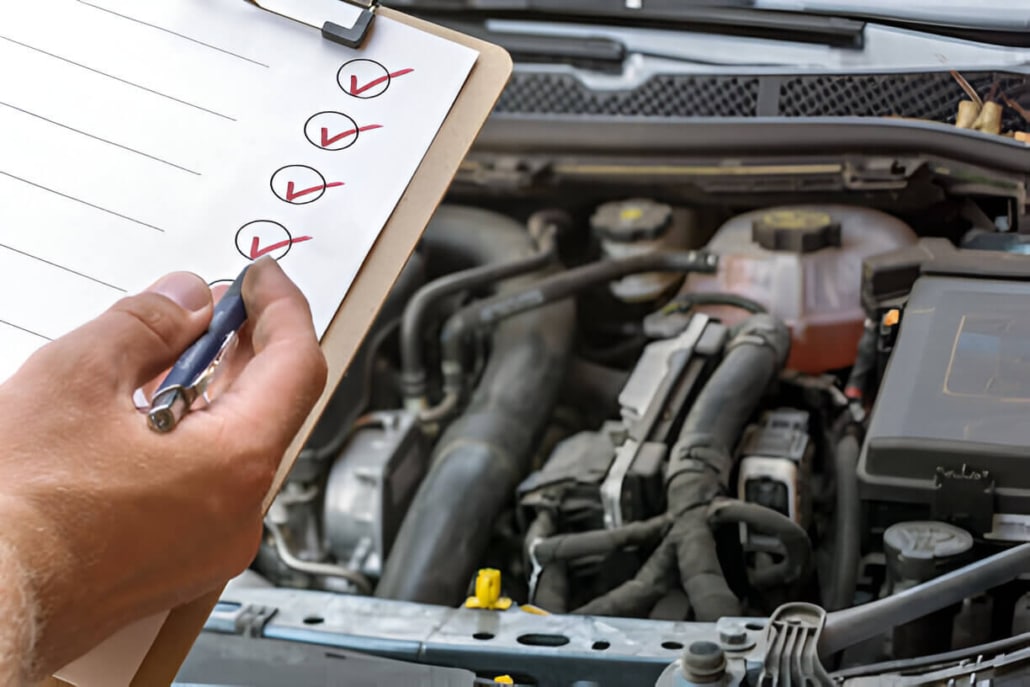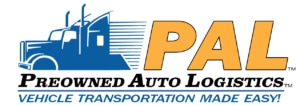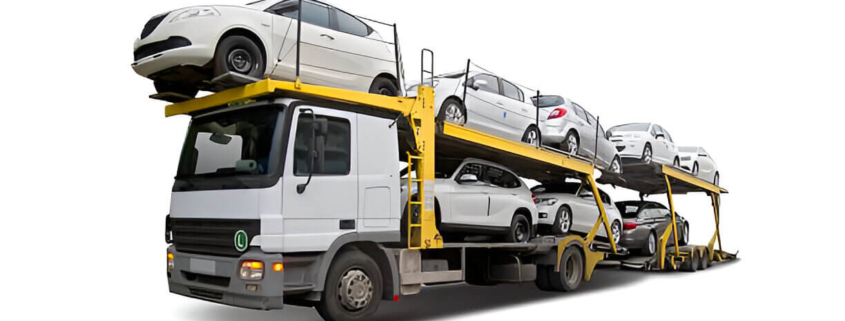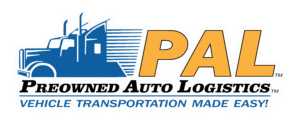Key Factors to Consider When Choosing a Trustworthy Vehicle Transport Service
Key Factors to Consider When Choosing a Trustworthy Vehicle Transport Service
Need to move your car to a new location? Vehicle transport services help people and businesses move their cars safely from one place to another, whether it’s across town or country.
Your car is valuable, both in money and emotional terms, making it important to choose the right transport company for a safe and timely delivery.
Preowned Auto Logistics has built a strong name in this field by focusing on what matters most: getting your vehicle where it needs to go without hassle or worry.
Ready to learn what makes a vehicle transport company trustworthy? Keep reading to discover the essential factors you should consider before making your choice.
Key Factors to Consider When Selecting a Vehicle Transport Service
Choosing the right company to ship your car matters more than you might think. Your decision can mean the difference between a smooth, worry-free experience and a stressful ordeal. Whether you’re moving across the country, buying a car from another state, or sending your classic car to a show, this guide will help you make a smart choice. Let’s explore the seven key factors you should consider before trusting someone with your vehicle.
#1. Reputation and reliability
A company’s reputation tells you what to expect. In today’s digital world, you can easily find out what others have experienced:
· Online review platforms: Check sites like Transport Reviews, Google Reviews, and the Better Business Bureau. Don’t just look at star ratings, read what customers actually say about their experiences. One bad review might be an outlier, but ten similar complaints suggest a pattern.
· Social media presence: Browse the company’s Facebook or Instagram pages. See how they interact with customers, especially when problems arise. Do they respond professionally to criticism or ignore it?
· Industry forums: Car enthusiast communities often share transport experiences. These unfiltered discussions can reveal insights you won’t find on company websites.
Look for comments about on-time pickups, vehicle condition at delivery, and how companies handle unexpected issues. These details reveal more than generic praise or complaints.
How to verify a company’s track record and service quality
Go beyond basic reviews with these verification steps:
· Request references: Ask for contact information of recent customers who shipped vehicles similar to yours. A quick conversation with someone who shipped their Ford F-150 to Florida last month will tell you more than dozens of anonymous reviews.
· Check business longevity: Companies that have survived for years in this competitive industry must be doing something right.
· Check complaint history: Look up the company through the FMCSA and BBB. Finding numerous unresolved complaints is a serious red flag.
#2. Proper Licensing and Insurance
Legal compliance isn’t just bureaucratic paperwork, it protects you:
· Department of Transportation (DOT) number: This unique identifier lets you check a carrier’s safety record. Search the FMCSA database to confirm if a company maintains a clean safety rating with no major violations.
· Motor Carrier (MC) number: This confirms the company can legally transport vehicles across state lines, allowing you to verify a company’s authority.
· FMCSA registration: Legitimate companies register with the Federal Motor Carrier Safety Administration and follow strict safety regulations. Many unreliable carriers skip this essential step.
The importance of insurance coverage for vehicle protection
The right insurance coverage protects your investment:
· Cargo insurance: This covers damage to your vehicle during transport with coverage typically ranging from $100,000 to $1,000,000.
· Liability insurance: This protects against damages to other people or property.
· Worker’s compensation: This covers employees who might be injured while loading your vehicle. It means you won’t face liability if someone hurts themselves while handling your BMW.
You should always request proof of insurance directly from the company besides verifying coverage details with their insurance provider. A reputable company will happily provide this information.

#3. Experience and Industry Expertise
Experience matters in vehicle transport. Here’s why:
- Route knowledge: Seasoned carriers are aware of the most efficient routes for different vehicles and conditions. For example, a veteran driver will avoid Colorado’s treacherous Wolf Creek Pass during winter, ensuring your SUV arrives without weather-related delays.
- Weather adaptation: Experienced transporters anticipate and plan around seasonal challenges. They’ll reroute your classic Corvette shipment away from an approaching hurricane along the Gulf Coast without you having to worry.
- Problem-solving ability: When issues arise (and they sometimes do), experienced companies handle them smoothly. If road construction suddenly blocks access to your delivery address, they’ll quickly arrange an alternative location nearby.
- Equipment expertise: Years in the industry mean better-maintained equipment. Passport Transport maintains their specialized enclosed carriers meticulously, keeping your vintage Porsche safe throughout its journey.
Why does working with an established transporter matter?
Established companies offer advantages that beginner ones simply can’t match:
• Established network: Long-standing relationships with terminals, storage facilities, and logistics partners create a reliable transport network. This translates to preferred scheduling, priority loading/unloading, and access to secure facilities nationwide, making it difficult for beginner companies to match the service level.
• Industry connections: Veteran companies maintain partnerships with multiple carriers, brokers, and regional specialists, providing crucial backup options if original plans fall through due to unexpected events. These connections often mean the difference between a minor delay and a significant service failure.
• Specialized knowledge: Many established transporters develop expertise with specific vehicle types (luxury, classic, exotic, oversized) and challenging routes (rural, mountainous, cross-border), providing optimal handling protocols and equipment customized to your vehicle’s needs. This specialization often includes enhanced insurance options and handling procedures.
• Financial stability: Companies with longevity demonstrate consistent cash flow and operational sustainability, meaning they’re unlikely to disappear during your vehicle’s journey. This stability also ensures they maintain proper insurance coverage, well-maintained equipment, and professional drivers rather than cutting corners to reduce costs.
#4. Transparent Pricing and No Hidden Fees
Clear pricing separates professional transporters from those with issues:
• Unusually low quotes: If a price seems too good to be true, it probably is. Be suspicious when Company X offers to ship your Cadillac Escalade cross-country for $600 when most quotes range from $1,100 to $1,500.
• Vague terms: Watch for ambiguous language in quotes. Phrases like “approximately,” “starting from,” or “fuel surcharges may apply” without specific rates often signal that the final price will be much higher than the initial quote.
• Large deposits: Reliable companies require modest deposits, usually 10-25% of the total cost. Be wary of companies asking for a $700 deposit on a $1,000 shipment.
• Cash-only policies: Professional transporters accept various payment methods, including credit cards that offer consumer protections. Avoid a company if it insists you pay your driver in cash upon delivery.
The benefits of upfront, all-inclusive pricing
• Budget certainty: Plan expenses accurately by knowing the exact cost to ship your vehicle between locations.
• Simplified comparison: All-inclusive quotes allow true “apples to apples” comparisons between service providers (e.g., Company A’s enclosed transport at $1,450 vs. Company B at $1,380).
• Fewer disputes: Transparent pricing prevents disagreements upon delivery, eliminating surprise fees like unexpected “rural delivery charges.”
• Quality assurance: Companies that itemize all charges demonstrate confidence in their service quality and pricing structure.
Always request a detailed breakdown of all fees and get the final quote in writing before you commit. A proper quote includes pickup and delivery fees, fuel surcharges, insurance costs, and any applicable taxes.

#5. Communication and customer service
Good communication makes all the difference:
• Peace of mind: Regular updates about your vehicle’s location reduce the stress of wondering where your car is. A simple text confirming your Nissan Altima has safely crossed into Arizona provides welcome reassurance.
• Logistical planning: Accurate delivery estimates help you plan your schedule. You can arrange to work from home on Thursday when your Toyota RAV4 arrives instead of taking an entire day off work.
• Grievance management: Prompt notification of delays helps you adapt. If severe weather delays your Subaru Outback’s delivery by two days, you can make alternative transportation arrangements without panic.
• Question resolution: Clear communication channels ensure your faster redress of your concerns. A call to your designated representative can clarify insurance coverage for your Kia Sorento.
Pay attention to how responsive a company is during the quote process. Their communication style before you book often reflects how they’ll communicate throughout the entire transport.
How good communication enhances your transport experience
Quality customer service goes beyond being friendly. Let’s find out how:
• Comprehensive communication channels: Professional auto transport companies offer multiple contact methods such as phone, email, or text message, making it easy to ask questions about your vehicle shipment at any time.
• Dedicated account representatives: Working with one dedicated representative creates continuity throughout your shipping process. They become familiar with your vehicle’s specific details and requirements, eliminating the need to repeatedly explain your situation.
• 24/7 customer support: Auto transport operations run around the clock, making live support outside business hours essential when you need to modify delivery information or address unexpected situations immediately.
• Transparent service expectations: Reputable transport companies communicate honest timeframes, avoiding impractical promises. Their delivery estimates account for distance, route conditions, and seasonal factors, setting appropriate expectations from the start.
#6 Transport Options: Open vs. Enclosed Carriers
Your vehicle type and needs should determine which transport method you choose:
Open Carriers
- Exposure: Your vehicle travels on open trailers, exposed to weather and road conditions, so your Toyota Camry might arrive with some dust and rain spots after a long journey.
- Capacity: These carriers typically transport 7-10 vehicles at once, with your Honda Civic sharing space with several other cars on a two-level carrier.
- Visibility: Your vehicle remains visible throughout transport, so you might even spot your bright red Ford Focus from the highway as the carrier passes through your town.
- Cost: You’ll generally pay 30-40% less than enclosed transport, with shipping your Hyundai Elantra from Miami to Boston costing around $850 instead of $1,200.
- Availability: You’ll experience shorter waiting periods, with a carrier potentially picking up your Mazda CX-5 within three days of booking instead of waiting a week for an enclosed carrier.
Enclosed carriers
- Protection: Your vehicle travels completely sheltered from weather, debris, and public view, keeping your restored 1957 Chevy Bel Air pristine throughout its journey from Arizona to Michigan.
- Capacity: These carriers transport just 2-6 vehicles, providing more personalized service where your Audi R8 shares space with only a few other premium vehicles.
- Security: Your rare Porsche 911 remains hidden during overnight stops, offering enhanced protection against theft and vandalism.
- Handling: Many enclosed carriers feature hydraulic lift gates for safer loading/unloading, which prevents your lowered BMW M3 from scraping during the process.
- Cost: You’ll pay more for the additional protection and specialized equipment, with your Mercedes AMG shipping potentially costing $1,950 versus $1,250 for open transport.
How to choose the right option based on your vehicle type and budget
Several factors should guide your transport method choice:
• Vehicle value: For vehicles valued over $50,000, enclosed transport usually makes sense. Doesn’t your new Jaguar F-Type deserve the extra protection of enclosed shipping?
• Vehicle type: Classic cars, luxury vehicles, exotic cars, and motorcycles benefit from enclosed shipping. Your vintage Harley-Davidson will travel safely in a fully enclosed trailer, protected from the elements.
• Weather considerations: If you’re shipping during harsh weather seasons, enclosed transport is preferable. Your Range Rover will avoid salt exposure when transported in an enclosed carrier during winter months.
• Timeline flexibility: Open transport offers more scheduling options due to greater availability. Your Volkswagen Jetta can ship within two days on an open carrier versus waiting a week for enclosed transport.
• Budget constraints: If budget is your primary concern and you have a standard daily driver, open transport provides a reasonable balance of cost and service. Your Kia Forte can ship via open carrier at 40% less than enclosed options.
#7 Vehicle Tracking and Delivery Efficiency
Modern technology has transformed the vehicle transport experience:
• GPS tracking: Advanced transport companies offer real-time GPS tracking through customer portals or mobile apps. Check your Smartphone anytime to see your Infiniti Q50’s exact location on its journey from Texas to Washington.
• Milestone notifications: Automated alerts about pickup, state crossings and approaching delivery keep you informed without constant checking. A text message notifies you when your vehicle crosses the Pennsylvania state line.
• Driver communication: Direct contact with drivers (or dispatchers who can reach them) keeps you relaxed. Call to ask about road conditions affecting your vehicle’s delivery timeline.
• Estimated time of arrival updates: Regular refinements to delivery estimates help with planning. An updated 2-hour delivery window for your automobile on the morning of delivery lets you plan your day effectively.
Factors affecting your pickup and delivery times
Understanding what influences transport timelines helps set realistic expectations:
• Distance: Cross-country shipments take longer than regional transport. For example, shipments take 8-10 days from Seattle to Miami but only 2-3 days from Seattle to Los Angeles.
• Route popularity: High-traffic routes between major cities have more frequent service. Vehicles ship between Chicago and Dallas in just 3 days due to carrier frequency on this popular route.
• Seasonal factors: Weather, holiday traffic, and seasonal demand impact timelines. Shipments may face delays in the Rocky Mountains during January snowstorms.
• Transport method: Door-to-door service takes longer in areas with restricted truck access. Carriers might need to park blocks away from downtown condos and use smaller vehicles for delivery.
• Vehicle type: Specialized vehicles require special handling or equipment. Lifted trucks need a specialized carrier with extra clearance, adding days to the typical delivery window.
How to Ensure a Smooth Auto Transport Experience
#1. Getting your vehicle ready for the journey
Clean your car thoroughly inside and out before the big day to identify existing marks or damage you’ll want to document. Take detailed photos from all angles as evidence if anything happens during transport.
Empty your vehicle completely; transport companies prohibit personal items due to insurance regulations. Fill your gas tank to only ¼ full, enough for loading and unloading without adding unnecessary weight.
Turn off your car alarm to preserve your battery. If you have a convertible, ensure the top is securely fastened. Remove or secure any loose parts that might detach during transport.
#2. Smart booking and scheduling moves
Book your transport at least two weeks in advance to secure better options and avoid rush charges. Obtain quotes from three different companies to compare prices and services.
Ask specific questions about insurance: What’s covered? How much protection do you have? How do claims work? Get written proof of their coverage. Look for companies offering tracking services so you can monitor your car’s journey.
Maintain flexibility with pickup and delivery times. Weather, road conditions, and other factors can alter schedules. Arrange for a backup person who can meet the driver if you’re unavailable.
#3. Reading the fine print pays off
Examine your contract carefully. Focus on cancellation policies, potential extra fees, and procedures if something goes wrong. Verify that the price matches your original quote.
Confirm that your contract specifies the exact pickup and drop-off locations. Ensure all your vehicle details are accurate, incorrect information can cause complications later.
Review payment terms and methods. Most companies require payment before delivering your car. Keep copies of all documentation, especially the bill of lading that documents your car’s condition at pickup.
Common Mistakes to Avoid When Choosing a Vehicle Transporter
Smart vehicle shipping requires dodging these common pitfalls that can cost you time, money, and peace of mind:
Falling for extremely low quotes
Those rock-bottom prices tempt many customers but hide unexpected fees or substandard service quality. Reputable auto transport companies must cover real costs—fuel, insurance premiums, and professional driver salaries. Extremely cheap quotes almost always come with a catch. Focus on clear, transparent pricing that details exactly what services your payment covers rather than just selecting the lowest bid.
Not verifying licensing and insurance
Never entrust your vehicle to transporters lacking proper credentials. Every legitimate auto transport company carries a USDOT number and appropriate insurance policies. Request these details before finalizing any booking, then confirm this information via the Federal Motor Carrier Safety Administration (FMCSA) website. This verification shields you from possible scams and provides protection if complications arise during transit.
Overlooking customer reviews and company reputation
The history of a transport company reveals their true reliability. Dedicate time to investigate potential transporters through multiple sources:
- Examine reviews across various platforms (Google, Yelp, BBB)
- Browse their social media accounts and customer interactions
- Identify patterns in customer complaints
- Contact previous clients for direct feedback
No transport service boasts a perfect record, but how a company addresses problems and maintains communication demonstrates their professional standards.
Conclusion
The right vehicle transport partner requires more than price shopping. Research shipping methods, prepare your vehicle properly, and ask thorough questions for safe delivery. Verify credentials, review contracts, and book well ahead of needed dates to avoid complications, especially during busy seasons.
Preowned Auto Logistics delivers transparent pricing, complete insurance protection, and employs skilled professionals who care for each vehicle as their personal property. Our history includes thousands of successful deliveries nationwide with customer service that has earned top industry satisfaction ratings.
Your vehicle deserves professional care during transport. Receive a free, no-obligation quote from Preowned Auto Logistics today and enjoy complete confidence in your shipping arrangements. Our representatives stand ready to address your concerns and guide your shipping experience from start to finish.




